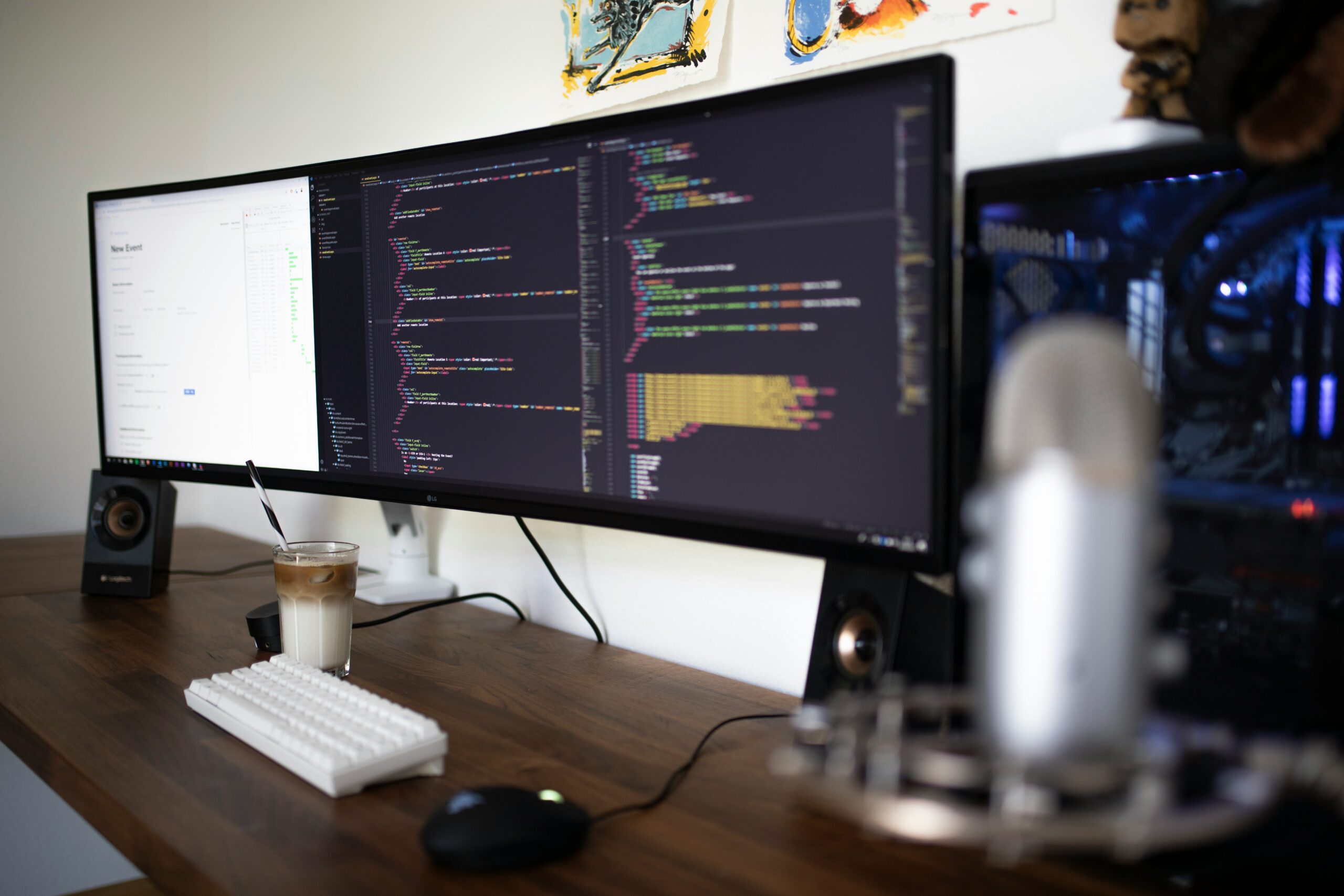The Role of Artificial Intelligence in Enhancing Vendor Security Solutions
April 23, 2024 | by aarbi4712

The Role of Artificial Intelligence in Enhancing Vendor Security Solutions
Introduction to AI-Powered Vendor Security Solutions
As the digital landscape continues to evolve and businesses become increasingly reliant on technology, the need for robust vendor security solutions has never been more critical. Vendors play a vital role in the operations of many organizations, providing essential services and products. However, they also pose inherent risks, as their systems and networks can become potential entry points for cybercriminals.
To combat these threats, organizations are turning to artificial intelligence (AI) to enhance their vendor security solutions. AI-powered systems have the ability to analyze vast amounts of data, identify patterns, and detect anomalies in real-time, enabling organizations to proactively identify and prevent vendor-related threats.
The integration of AI into vendor security solutions offers several key benefits. Firstly, AI algorithms can continuously monitor and analyze vendor activities, providing real-time insights into potential vulnerabilities or suspicious behavior. This proactive approach allows organizations to stay one step ahead of cyber threats, mitigating the risk of data breaches or other security incidents.
Furthermore, AI-powered vendor security solutions can automate the process of evaluating vendor risk. By leveraging machine learning algorithms, these systems can assess the security posture of vendors based on various factors, such as their history of security incidents, compliance with industry regulations, and the effectiveness of their security controls. This automated risk assessment process not only saves time and resources but also ensures a more comprehensive and objective evaluation of vendor security.
Another advantage of AI in vendor security solutions is its ability to enhance incident response capabilities. In the event of a security incident involving a vendor, AI algorithms can quickly analyze the situation, identify the root cause, and recommend appropriate remediation actions. This rapid response time minimizes the impact of the incident and reduces the potential for further damage.
Moreover, AI-powered systems can continuously learn and adapt to new threats and attack techniques. As cybercriminals constantly evolve their tactics, traditional security solutions may struggle to keep up. However, AI algorithms can quickly analyze new patterns and behaviors, enabling organizations to proactively update their vendor security measures to counter emerging threats.
In conclusion, the integration of artificial intelligence into vendor security solutions offers significant advantages in mitigating the risks associated with vendors. By leveraging AI algorithms, organizations can proactively identify and prevent vendor-related threats, automate vendor risk assessment, enhance incident response capabilities, and adapt to evolving cyber threats. As technology continues to advance, AI will undoubtedly play a crucial role in safeguarding organizations’ digital assets and maintaining a secure vendor ecosystem.
Benefits of Using AI in Detecting and Preventing Vendor-Related Threats
There are several key benefits to using AI in detecting and preventing vendor-related threats:
- Improved Accuracy: AI-powered systems have the ability to analyze data with a level of accuracy and precision that is unmatched by traditional security solutions. By leveraging machine learning algorithms, these systems can continuously learn and adapt to new threats, ensuring that organizations have the most up-to-date protection.
- Real-Time Detection: One of the most significant advantages of AI-powered vendor security solutions is their ability to detect threats in real-time. Traditional security measures often rely on manual analysis and detection, which can be time-consuming and prone to human error. AI systems, on the other hand, can instantly identify and respond to potential threats, minimizing the impact of an attack.
- Reduced False Positives: Traditional security solutions often generate a high number of false positives, leading to alert fatigue and a drain on resources. AI-powered systems can significantly reduce false positives by leveraging advanced algorithms that can accurately distinguish between legitimate and malicious activities.
- Enhanced Threat Intelligence: AI-powered vendor security solutions can provide organizations with valuable insights into emerging threats and attack patterns. By analyzing vast amounts of data from multiple sources, these systems can identify trends and patterns that may indicate a potential attack, enabling organizations to take proactive measures to prevent it.
- Automation of Security Processes: AI-powered systems can automate many security processes, freeing up valuable time and resources for security teams. By automating tasks such as threat detection, response, and remediation, organizations can improve their overall security posture and respond more effectively to vendor-related threats.
- Cost-Effective: Implementing AI-powered vendor security solutions can also be cost-effective in the long run. While the initial investment may be higher compared to traditional security solutions, AI systems can significantly reduce the manpower required for manual security tasks. This can lead to cost savings in terms of personnel and operational expenses.
- Scalability: AI-powered systems can easily scale to meet the needs of growing organizations. As the volume of data and the complexity of threats increase, AI systems can handle the workload without compromising performance. This scalability ensures that organizations can maintain a robust security infrastructure even as their operations expand.
- Continuous Monitoring: AI-powered vendor security solutions can provide continuous monitoring of vendor activities and transactions. This allows organizations to have real-time visibility into potential risks and vulnerabilities, enabling them to take immediate action to mitigate any threats. Continuous monitoring also ensures that organizations can quickly identify and address any security issues that may arise, minimizing the impact on their operations.
- Compliance and Regulatory Requirements: AI-powered systems can help organizations meet compliance and regulatory requirements more effectively. By automating security processes and providing detailed reports and audit trails, these systems can streamline the compliance process and ensure that organizations are adhering to industry standards and regulations.
Case Study 4: Manufacturing Industry
In the manufacturing industry, a leading company implemented an AI-driven vendor security solution to safeguard their supply chain and protect their intellectual property. The system analyzed data from various vendors, including manufacturing equipment, logistics systems, and supplier networks, to identify potential vulnerabilities and threats. By leveraging AI algorithms, the organization was able to detect and prevent unauthorized access attempts, counterfeit products, and supply chain disruptions. The AI system also provided predictive analytics, enabling the organization to proactively address security risks and optimize their supply chain operations.
Case Study 5: Technology Industry
A technology company implemented an advanced AI-powered vendor security solution to protect their software products and intellectual property. The system analyzed data from multiple vendors, including source code repositories, developer tools, and third-party libraries, to identify potential security vulnerabilities and code weaknesses. By leveraging AI algorithms, the organization was able to detect and prevent software vulnerabilities, malware injections, and intellectual property theft. The AI system also provided automated code analysis and recommendations, enabling the organization to improve their software security practices and deliver more secure products to their customers.
Case Study 6: Energy Industry
In the energy industry, a major utility company implemented an AI-based vendor security solution to protect their critical infrastructure and prevent cyber attacks. The system analyzed data from various vendors, including SCADA systems, smart meters, and network devices, to identify potential security risks and anomalies. By leveraging AI algorithms, the organization was able to detect and prevent unauthorized access attempts, malware infections, and physical tampering. The AI system also provided real-time monitoring and incident response capabilities, enabling the organization to quickly respond to security incidents and minimize the impact on their operations.
Expand your TPRM knowledge and capabilities with in-depth resources at Third-Party Risk Management.
RELATED POSTS
View all


